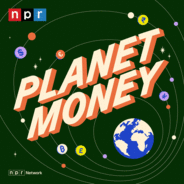We often hear that air travel is worse than it's ever been. Gone are the days when airplanes touted piano bars and meat carving stations — or even free meals. Instead we're crammed into tiny seats and fighting for overhead space. How did we get here? Most of the inconveniences we think about when we fly can be traced back to the period of time just after the federal government deregulated the airlines. When commercial air travel took off in the 1940s, the government regulated how many national airlines were allowed to exist, where they were allowed to fly, and how much they could charge for tickets. But the Airline Deregulation Act of 1978 swept all these restrictions aside – and stopped providing subsidies for the air carriers. Airlines had to compete on ticket prices. That competition led to a more bare-bones flying experience, but it also made air travel a lot more affordable. In this episode, we trace the evolution of air travel over the past century to discover whether flying really is worse today — or if it's actually better than ever. We'll board a plane from the "golden age" of air travel, hear the history of one of the original budget airlines and meet feuding airline CEOs. Along the way, we'll see how economic forces have shaped the airline industry into what it is today, and what role we, as consumers, have played. Help support Planet Money and hear our bonus episodes by subscribing to Planet Money+ in Apple Podcasts or at plus.npr.org/planetmoney.Learn more about sponsor message choices: podcastchoices.com/adchoicesNPR Privacy Policy

Wirtschaft
Planet Money Folgen
Wanna see a trick? Give us any topic and we can tie it back to the economy. At Planet Money, we explore the forces that shape our lives and bring you along for the ride. Don't just understand the economy – understand the world.Wanna go deeper? Subscribe to Planet Money+ and get sponsor-free episodes of Planet Money, The Indicator, and Planet Money Summer School. Plus access to bonus content. It's a new way to support the show you love. Learn more at plus.npr.org/planetmoney
Folgen von Planet Money
355 Folgen
-
Folge vom 05.07.2024How flying got so bad (or did it?)
-
Folge vom 03.07.2024The two companies driving the modern economyAt the core of most of the electronics we use today are some very tiny, very powerful chips. Semiconductor chips. And they are mighty: they help power our phones, laptops, and cars. They enable advances in healthcare, military systems, transportation, and clean energy. And they're also critical for artificial intelligence, providing the hardware needed to train complex machine learning.On today's episode, we're bringing you two stories from our daily show The Indicator, diving into the two most important semiconductor chip companies, which have transformed the industry over the past 40 years. First, we trace NVIDIA's journey from making niche graphics cards for gaming to making the most advanced chips in the world — and briefly becoming the world's biggest company. Next, we see how the Taiwan Semiconductor Manufacturing Company's decision to manufacture chips for its competition instead of itself flipped the entire industry on its head, and moved the vast majority of the world's advanced chip production to Taiwan. Help support Planet Money and hear our bonus episode about NVIDIA by subscribing to Planet Money+ in Apple Podcasts or at plus.npr.org/planetmoney. Learn more about sponsor message choices: podcastchoices.com/adchoicesNPR Privacy Policy
-
Folge vom 29.06.2024Do immigrants really take jobs and lower wages?We wade into the heated debate over immigrants' impact on the labor market. When the number of workers in a city increases, does that take away jobs from the people who already live and work there? Does a surge of immigration hurt their wages? The debate within the field of economics often centers on Nobel-prize winner David Card's ground-breaking paper, "The Impact of the Mariel Boatlift on the Miami Labor Market." Today on the show: the fight over that paper, and what it tells us about the debate over immigration. More Listening: - When The Boats Arrive - The Men on the RoofThis episode was hosted by Amanda Aronczyk and Jeff Guo. It was produced by Willa Rubin, edited by Annie Brown, and engineered by Valentina Rodríguez Sánchez. Fact-checking by Sierra Juarez. Alex Goldmark is Planet Money's executive producer.Help support Planet Money and hear our bonus episodes by subscribing to Planet Money+ in Apple Podcasts or at plus.npr.org/planetmoney.Learn more about sponsor message choices: podcastchoices.com/adchoicesNPR Privacy Policy
-
Folge vom 26.06.2024The Carriage Tax (Update)(Note: A version of this episode originally ran in 2019.)In 1794, George Washington decided to raise money for the federal government by taxing the rich. He did it by putting a tax on horse-drawn carriages.The carriage tax could be considered the first federal wealth tax of the United States. It led to a huge fight over the power to tax in the U.S. Constitution, a fight that continues today.Listen back to our 2019 episode: "Could A Wealth Tax Work?"Listen to The Indicator's 2023 episode: "Could SCOTUS outlaw wealth taxes?" This episode was hosted by Greg Rosalsky and Bryant Urstadt. It was originally produced by Nick Fountain and Liza Yeager, with help from Sarah Gonzalez. Today's update was produced by Willa Rubin and edited by Molly Messick and our executive producer, Alex Goldmark.Help support Planet Money and hear our bonus episodes by subscribing to Planet Money+ in Apple Podcasts or at plus.npr.org/planetmoney.Learn more about sponsor message choices: podcastchoices.com/adchoicesNPR Privacy Policy
